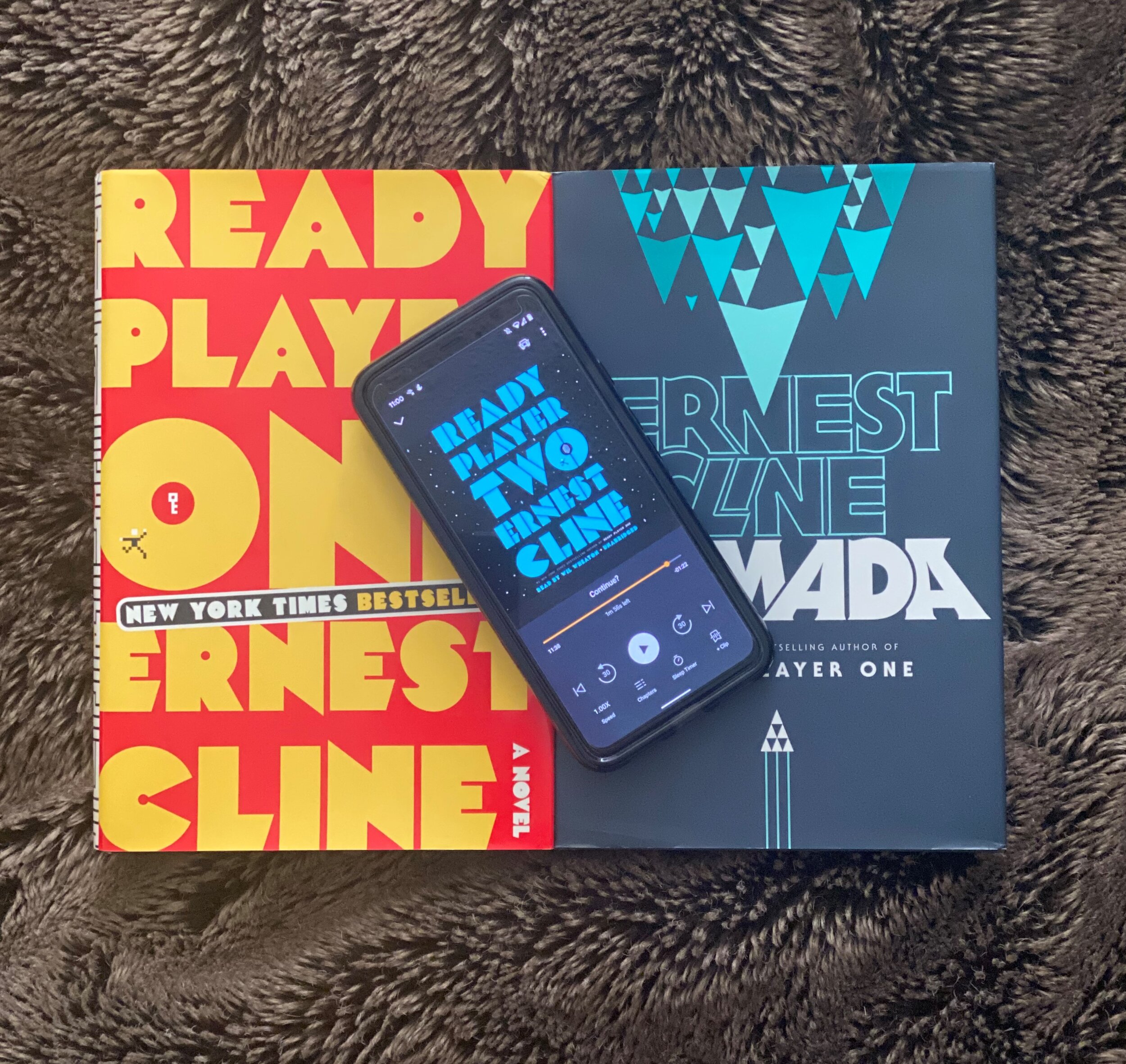Ready Player One was one of my favorite novels the year it was released. (Check out my podcast episode on the novel!) Having grown up in the Eighties and Nineties, the novel’s reliance on late 20th century pop culture references placed me firmly in the target demographic. Having firsthand knowledge of so many of the films, books, comics, and video games referenced in the novel, I felt like I was an active participant in solving the riddle of Halliday’s Egg. The novel also expanded my pop culture knowledge as I researched references with which I was unfamiliar. Further, since video gaming is my main hobby aside from reading, Ready Player One was a nearly perfect wish fulfillment fantasy. I read the hardcover when it was released and during a difficult time in my life, I found Wil Wheaton’s Audible Audiobook narration to be a supreme happy place for me and listened to it several times. I even enjoyed Steven Spielberg’s film adaptation as I found myself once again fantasizing about being able to exist within a fully virtual world.
In late Autumn 2020, Ernest Cline released the long-anticipated sequel, Ready Player Two. Because I have enacted a book-buying ban on myself until I clear out significant real estate on my Unread Shelf and because I adored Wil Wheaton’s audiobook narration of the first book so much, I used an Audible credit to snag the audiobook version of Ready Player Two which is also narrated by Wheaton.
I had some concerns though (not about Wheaton, I am a total fanboy). At the conclusion of Ready Player One, protagonist Wade Watts finds himself truly Joseph Campbell’s Master of Two Worlds as he wins administrative control of the virtual world The OASIS as well as its creator James Halliday’s multi-billion dollar fortune to enjoy in the meat world. Oh, he also gets the girl. In true Hero’s Journey fashion, readers follow Wade’s rise from orphaned kid living in the slums to the world’s wealthiest and most powerful man. How is a sequel going to work when the hero already has everything he could ever want? Look at other stories that do something similar. Hamstring the hero, strip them of their power. Introduce an even more powerful enemy. Raise the stakes. Cline handles the issue well in Ready Player Two while also introducing new elements that once again activated my wish fulfillment synapses.
Wade is forced to deal with the corrosive nature of power and greed, not from the capitalist monster from the first novel, but from within as he becomes a shadow of himself. As he comes to terms with his fall from grace and struggles to right the wrongs he has inflicted, he finds himself once again tasked with saving The OASIS. Wade must also confront the dangers of hero worship as he discovers the skeletons in James Halliday’s closet. I enjoyed this part of the novel. So many of the world’s heroes are expected to be perfect beings, but even the greatest among us are flawed individuals. This may be Ready Player Two’s best lesson … aside from the whole giving-a-machine-control-of-your-brain-maybe-not-being-a-good-idea thing.
As in the audiobook for Ready Player One, Wil Wheaton performs Ready Player Two with a sincerity and warmth that felt like a fuzzy blanket and cup of coffee on a brisk winter morning. He also narrates Armada, Cline’s second novel, so I may have to listen to his performance of that novel and see if it elevates my enjoyment of it.
Ready Player One was beloved by millions, myself included. Detractors, however, were not impressed by a contest winnable only by being the best pop culture nerd. I actually enjoyed that aspect of the novel because I recognized a lot of references and those I did not know, I had fun researching. If you did not like Ready Player One for this reason, know that Ready Player Two is much more of that as Wade races to find the Seven Secret Shards before his opponent. In the first novel, I accepted Wade’s success because he had spent all of his free time studying his hero’s favorite books, movies, and video games. However, his encyclopedic knowledge in Ready Player Two, especially regarding John Hughes films and the actors who starred in them, did begin to wear down my patience. Whereas Wade’s pop culture knowledge was critical to his success in the first novel, it was focused, even when Wade was chasing a red herring. In this sequel, there are lengthy passages that feel like Ernest Cline is showing off his own knowledge or fruits of his research. That is the only downside to what I feel is a wonderful and worthy sequel to one of my favorite stories.
Ernest Cline concludes the novel with an interesting scenario that could be a satisfying conclusion to a two-book series or could be a springboard to an entirely new series of stories. If he chooses to end the tale here, consider me a satisfied reader. If he has another OASIS seed germinating in his creative brain, look for me at the bookstore on Release Day.

